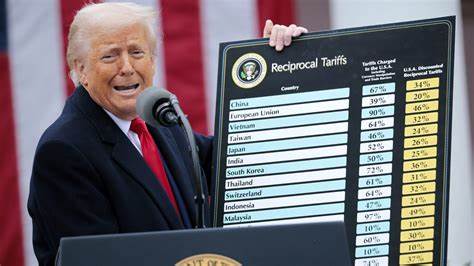FCCPC’s One-Month Moratorium: A Call for Cooperation
The Federal Competition and Consumer Protection Commission (FCCPC) has provided further clarity regarding its one-month moratorium given to traders and market stakeholders involved in exploitative pricing.
This comes after feedback on the recent directive to curb price gouging, price fixing, and other exploitative practices in the Nigerian market.
Join our WhatsApp ChannelSpeaking at a stakeholders’ engagement on exploitative pricing in Abuja, Mr. Tunji Bello, the newly appointed Executive Vice Chairman of the FCCPC, emphasised the need for collaboration between the Commission, traders, and consumers.
“We are giving a moratorium of one month before the Commission will start firm enforcement,” Bello stated. He urged all stakeholders to embrace the spirit of patriotism and cooperation during this period.
Price Fixing Threatens Economic Stability
During the meeting, Bello highlighted examples of unwholesome practices threatening the stability of the Nigerian economy.
He cited a case where a fruit blender, priced at $89 (approximately N140,000) in a Texas supermarket, was being sold for N944,999 in a Lagos supermarket. “Such practices are not only unethical but also harmful to the economy,” Bello warned.
READ ALSO: FCCPC Intensifies Efforts To Curb Unfair Pricing In Nigerian Market Amid Naira Appreciation
He further noted that under Section 155 of the Federal Competition and Consumer Protection Act (FCCPA) 2018, violators face severe penalties, including substantial fines and imprisonment. “Our approach today is not punitive,” Bello clarified, “but a necessary step to ensure fair market practices.”
FCCPC Responds to Stakeholder Concerns
Ifeanyi Okonkwo, Chairman of the National Association of Nigerian Traders, FCT Chapter, raised concerns about the high charges on imported goods at the ports, which contribute to price hikes.
He urged the FCCPC to establish a task force that includes the association to aid in enforcement efforts.
In response, Bello acknowledged the complexities of the current macroeconomic environment, exacerbated by the removal of fuel subsidies and fluctuations in the foreign exchange market. ”
The government is aware of these challenges,” he assured, “but traders must also avoid exploitative practices that further burden consumers.”
FCCPC’s Position on the Moratorium
The FCCPC issued a statement on its X page, clarifying the intention behind the directive. The Commission emphasized that the moratorium is not an attempt at price control or an arbitrary mandate to crash prices.
Rather, it is focused on preventing exploitative behaviours such as price gouging and price fixing, which are prohibited under the FCCPA 2018.
The statement read, “These practices distort the market and harm consumers, and our commitment is to uphold a marketplace rooted in fairness and accountability by enforcing the provisions of the FCCPA. We encourage businesses to comply with the law and consumers to report any instances of exploitative practices.”
Moving Forward: FCCPC’s Commitment to Fair Competition
The FCCPC reiterated its commitment to working with stakeholders, including businesses, consumer groups, and political leaders, to promote fair competition and consumer protection.
“We look forward to your continued support and understanding,” the Commission concluded, urging both businesses and consumers to collaborate in maintaining a fair marketplace.
The FCCPC, a Federal Government regulatory agency, is statutorily empowered to provide speedy redress to consumer complaints and enforce fair market practices across Nigeria.
As the one-month moratorium begins, all eyes are on the Commission to see how it will balance enforcement with the complex economic realities facing the nation.
Emmanuel Ochayi is a journalist. He is a graduate of the University of Lagos, School of first choice and the nations pride. Emmanuel is keen on exploring writing angles in different areas, including Business, climate change, politics, Education, and others.
- Emmanuel Ochayihttps://www.primebusiness.africa/author/ochayi/
- Emmanuel Ochayihttps://www.primebusiness.africa/author/ochayi/
- Emmanuel Ochayihttps://www.primebusiness.africa/author/ochayi/
- Emmanuel Ochayihttps://www.primebusiness.africa/author/ochayi/



















Follow Us